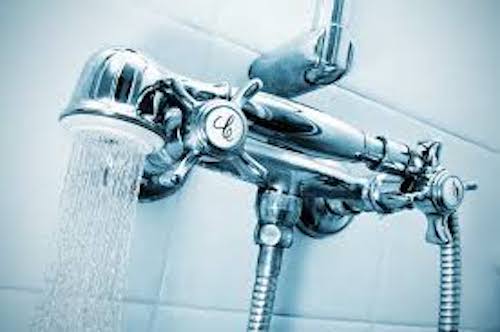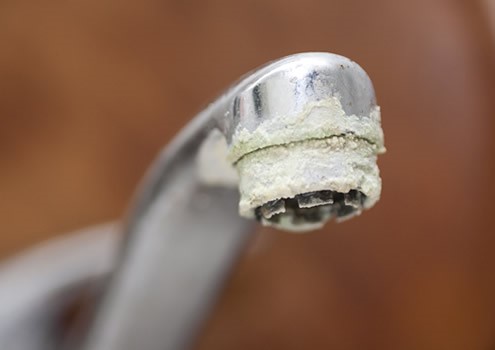Research shows that 85% of US households have hard water running through their plumbing systems.
The good news is, hard water doesn’t affect your health. It does, however, have an adverse effect on appliances as well as skin and hair.
If you have hard water in your home, you might consider a water softener. Before you do, you should know how it works and what the potential benefits are.
Keep reading to find out what is water softener and how it benefits your home.

What Is Hard Water?
When water falls as rain, it’s considered soft. But, as that water flows into the ground, it collects minerals.
As groundwater flows it dissolves rock such as limestone and metals such as iron. This can lead to heightened levels of certain minerals.
When the water has high levels of calcium and magnesium as a result of this process, it’s called hard water. Soft water may also contain these minerals but in much smaller amounts.
The Problem With Hard Water
Hard water may not impact your health and wellbeing but it does impact your home.
As calcium and magnesium buildup on your pipes, fixtures, hot water heaters, and heating elements, your plumbing and appliances will experience problems. Not only does that shorten the lifespan of your plumbing and appliances, but it can cause costly repairs.
Just as they do on your plumbing fixtures and appliances, minerals in hard water buildup on dishes and glassware, making it difficult to keep them clean.
You might notice that scaly buildup in sinks, bathtubs, and washing machines, too. That’s because hard water doesn’t allow your soap and detergent to dissolve and wash away properly
Hard water isn’t good for your skin and hair, either. In terms of your skin, the minerals present in hard water dry it out. That results in itchy and irritated skin, especially for those with already sensitive skin. And washing your hair with hard water leads to dry, brittle, and frizzy locks.
Do You Have Hard Water?
Below are a few signs you might have hard water in your home:
- Faucets and plumbing fixtures with watermarks, despite recent cleaning
- The color of clothes fading faster
- White clothes are dingy after washing
- Excessive buildup of lime and chalk in sinks, showers, and tubs
- Foul-tasting water
- Foul-smelling water
- Dry, itchy skin after showering
- Low water pressure
- Appliances breaking down
- Dishes and glassware with residue and watermarks

To be absolutely sure that you have hard water, you’ll have to run a test. There are testing kits and independent laboratories that can confirm the hardness of your water. If your water comes from a community water system, they should have information regarding whether or not your water is hard.
What Is Water Softener?
Water softeners take hard water and make it soft. They do this through a process called ion exchange.
This removes calcium and magnesium and replaces them with sodium chloride ions. In fact, it can remove other minerals such as iron and manganese as well.
A water softener works with resin beads. These resin beads are able to trap the minerals and then exchange them for sodium. When the beads become too full of minerals, a solution of sodium removes the minerals from the beads and is then washed down the drain.
There are many different kinds of water softeners. Learn more about the Costco water softener here.
Do You Need a Water Softener?
There is no legal requirement for you to use a water softener. But you might choose to install one for your own personal reasons.
If your water comes from a well, chances are that you have hard water. But, contrary to popular belief, people living in cities may also have hard water. That’s because even municipalities that treat their water to make it drinkable don’t remove the minerals that make it hard.
Most people who have a water hardness greater than 7 grains per gallon will want to consider a water softener. At this level, hard water has a big impact on your appliances – and replacing or fixing washing machines and dishwashers is more expensive than a water softener in the long run.
Other reasons you might consider installing a water softener is to improve the quality of your water. Minerals can change the taste, smell, and appearance of your water. A water softener will remove odors and tastes so your water is more drinkable.
If you find that hard water is making it difficult to keep your home clean due to built-up soap scum and residue, you might also consider a water softener. It will also improve the cleanliness of your laundry and the feeling of your skin and hard after a shower.
Health Impacts of Softened Water
Keep in mind that hard water doesn’t have any adverse effect on your health, aside from the occasional bouts of dry skin and hair. On the other hand, removing those minerals with a water softener can indeed impact your health.
Remember that a water softener works by replacing minerals with sodium, which is essentially salt. In the end, that means your water will have more salt in it – and salt at high levels isn’t great for your health.
This is especially important to consider if you or someone else in the household has high blood pressure. In those cases, you should talk to a doctor before softening your water.
With that said, you might opt to have one tap for softened water and one that’s unsoftened for cooking and drinking. You may also choose a water softener that uses potassium chloride instead of sodium chloride.
More Tips For House and Home
So, what is water softener? Simply put, it’s a device that takes hard water and softens it. That means removing the calcium and magnesium from your water and replacing it with sodium chloride or potassium chloride.
Water softeners are just one of the many ways you might improve your home. For more tips and advice on house and home, be sure to visit our blog.